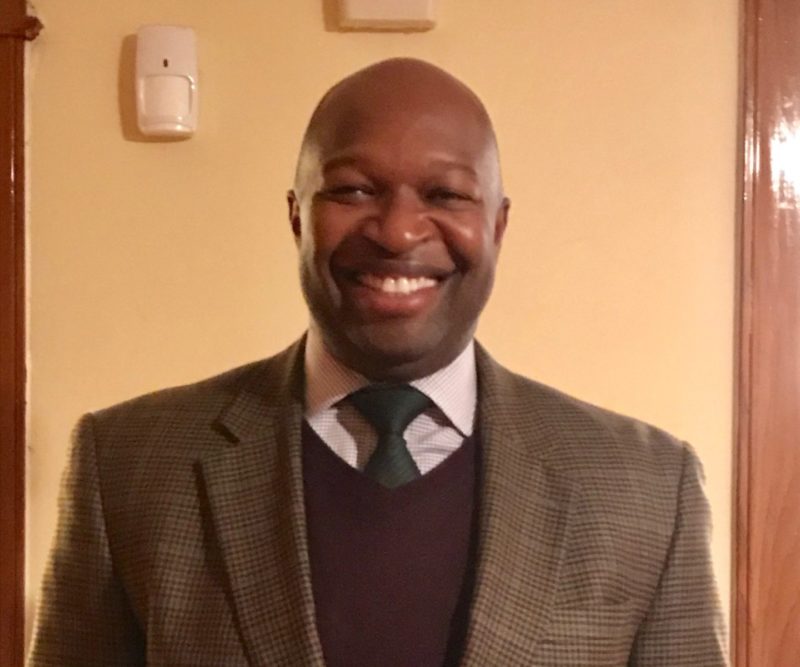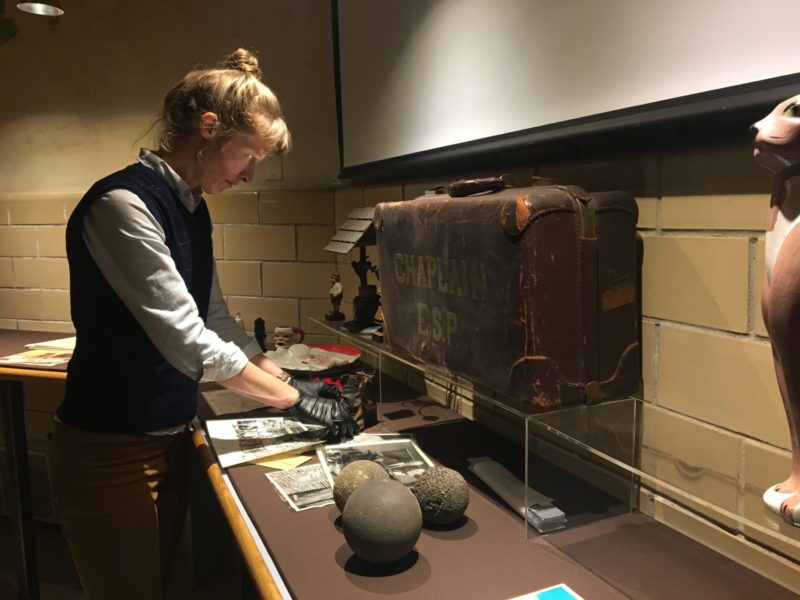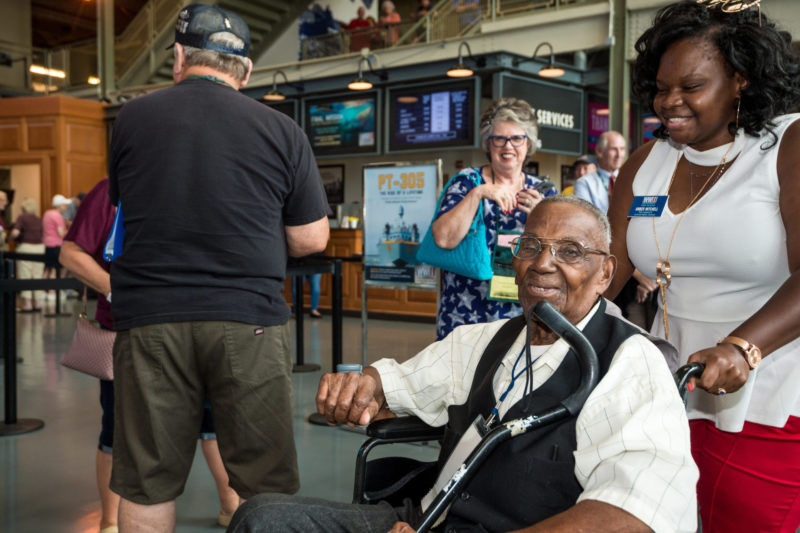How We Grow: Making Connections
12 March 2020 – Priya Chhaya and William Stoutamire
Editors’ Note: This post is part of a series that illustrates the role of the NCPH Endowment in supporting the work of the organization. As we all know, next week the NCPH was to gather in Atlanta for our annual meeting. This decision to cancel due to COVID-19 puts NCPH in the position of taking an enormous financial hit, with far reaching implications. As we were also coming together to celebrate our 40th anniversary, recent events changed the nature of what the organization’s fundraising needs are. We would still like to encourage contributions to the Endowment, but contributing to the Annual Fund provides immediate access to funds to help with present expenses. You can learn more at at the donate page on NCPH.org.
In less than a week many of us will be in Atlanta, GA, for the National Council on Public History’s annual conference. This gathering provides an annual dose of inspiration. But this year, we have an opportunity to commemorate the organization’s 40th anniversary.
For the last few months, as two of the co-chairs for the Endowment Campaign, Will Stoutamire and I have gathered testimonials about the value of NCPH to our members, the importance of the Endowment, and how the organization can grow in the next 40 years. To close out How We Grow, we present a final collection of thoughts about making connections and future opportunities for this professional organization so many of us call home.
Below you will hear from
Brian Joyner: Chief of Staff, National Mall and Memorial Parks, National Park Service
Laurie Arnold: Associate Professor of History, Gonzaga University
Annie Anderson: Manager, Research and Public Programming, Eastern State Penitentiary
Nicole Moore: Director of Education, National Center for Civil and Human Rights and Independent Consultant
Amber Mitchell: Assistant Director of Public Engagement, National WWII Museum
Vanessa Macias Camacho: Associate Professor, History El Paso Community College
Why are you a member of NCPH?

Photo of Brian Joyner. Photo credit: Jill Connors Joyner
Brian Joyner: As a young professional, I became acquainted with the National Council on Public History through The Public Historian. It introduced me to subjects I hardly knew existed and practitioners engaged in putting history to work in the world. It was a message in a bottle, the firelight pointing me in the right direction. Once I began attending conferences, it was as if I’d run into my long-lost family. The connections and the conversations sustain me, as does the brilliance of the members and dedication of the staff. NCPH is my professional organizational home.
Laurie Arnold: I’m a member of NCPH because I learn so much from other members and conference attendees, and these conversations help me expand my own comprehension of history and the practice of historical interpretation. I suppose I am primarily an academic historian, but my work is public-facing, and I have opportunities to participate in museum interpretation and public humanities and digital humanities conversations; being a member of NCPH prepares me to engage with colleagues seeking collaboration.
Annie Anderson: I consider NCPH to be my professional home. The annual NCPH conference has become essential to strengthening my public history practice and building a network of smart, engaged collaborators. There’s a lot of emergent energy at NCPH conferences—perhaps because the organization is relatively young. I appreciate the culture of possibility and openness at NCPH. The people and the activities are friendly and open-minded, and the conversations are serious (but not pretentious). That’s a tricky balance to strike, but I think NCPH gets it right.
How has the NCPH Endowment Fund helped you in your work as a public historian?
Amber Mitchell: As a graduate student, I attended the Careers in History Symposium/Mini-Con that was extremely helpful in thinking about where I wanted to be as a member of the field. Indirectly, I have been able to interact, befriend, and partner with so many public historians who would have been unable to attend conferences without scholarships and grants. More so than my own attendance, I am grateful that NCPH provides methods by which underrepresented groups can get the same access as others in a field that is desperately in need of them.

Annie Anderson at work at Eastern State Penitentiary. Photo Credit: Eastern State Penitentiary
Annie Anderson: As a member of the Student Project Award and Graduate Student Travel Award Committee, I’ve been able to connect a number of students to financial awards that have helped them attend the annual conference and have their work recognized by the field. I’ve learned a lot about how public history work manifests in different parts of the country (and throughout the world) from reading about the wonderful work that students are doing in collaboration with their professors, university and state archives, and community partners.
Nicole Moore: The Endowment has provided a sense of security for me and those I have encouraged to join the organization by being a continued support whether it’s through workshops or having a base staff that is not just available and accessible but also actively engaged with membership. One of the best things the Endowment does is provide money for the conference accessibility fund. NCPH is for everyone, and by making the conference accessible we continue to show that public history matters and cannot exist without those who engage with public history, no matter what their needs are.
In what ways would you like to see NCPH further support public historians?
Amber Mitchell: I would love to see NCPH provide practical training for young, new, or more experienced public historians in areas that universities are unable to cover—budgeting, relationship building, managing people, and preparing for your next career step beyond entry level. Most importantly, the most crucial path for NCPH, in my opinion, is advocating for good labor practices for all public historians through equitable labor guidelines, if not unionization of the field. The ways in which public historians are treated by their employers from internships to employment can be abysmal. We should be able to rely on our resource organizations to speak up on our behalf.

Amber Mitchell with Mr. Lawrence Brooks, the oldest living American WWII veteran during his annual birthday at the National WWII Museum. Photo Credit: Frank Aymami
Laurie Arnold: I appreciate the many ways NCPH supports public history and historians, from the blog, to awards, to advocacy. I wonder if it could be possible to create a resource center which could connect smaller historical organizations seeking subject matter specialists with our members. I imagine this could be useful both for collaboration on interpretation but also perhaps for grant seeking. I know it is sometimes difficult for smaller organizations to make connections beyond their local or individual networks. This could also be a membership development tool.
Nicole Moore: I would like to see NCPH dive deeper into assisting not just new graduate public historians, but also those mid-career public historians who might want to dip their toes in uncharted, elevated waters, but don’t know how. A lot of us mid-levels are trying to get to that next level, but we may not feel like we have everything it takes. Continued support, sessions on “freshening up” resumes or expanding experiences, or just a cheerleading squad to encourage us to take that leap of faith would be everything. To me, it would mean that NCPH isn’t just interested in hooking public historians while we are young, but that is is also encouraging us through our entire careers.
Vanessa Camacho: I am proud of how NCPH takes on current, pressing issues in public history, something I became aware of after serving on the Board of Directors. I appreciate how NCPH assists graduate students and emerging professionals in the often confusing and stressful process of finding internship and employment opportunities that match their skills. Over the course of my membership in NCPH, which now spans at least a decade, NCPH has truly made strides in supporting this aspect of the membership. Perhaps reflecting my own career, I would like to see NCPH offer guidance to mid-career professionals, from fighting burn-out, to promoting and expanding public history opportunities at their institution and community, refining leadership and supervisory skills, and learning new public history skill sets that can open up new career opportunities.
Priya Chhaya and William Stoutamire are co-chairs of the Endowment Campaign. Priya is an associate director of content at the National Trust for Historic Preservation and Will is an Assistant Professor and Co-Director of the Center for Public History at the University of West Georgia.



